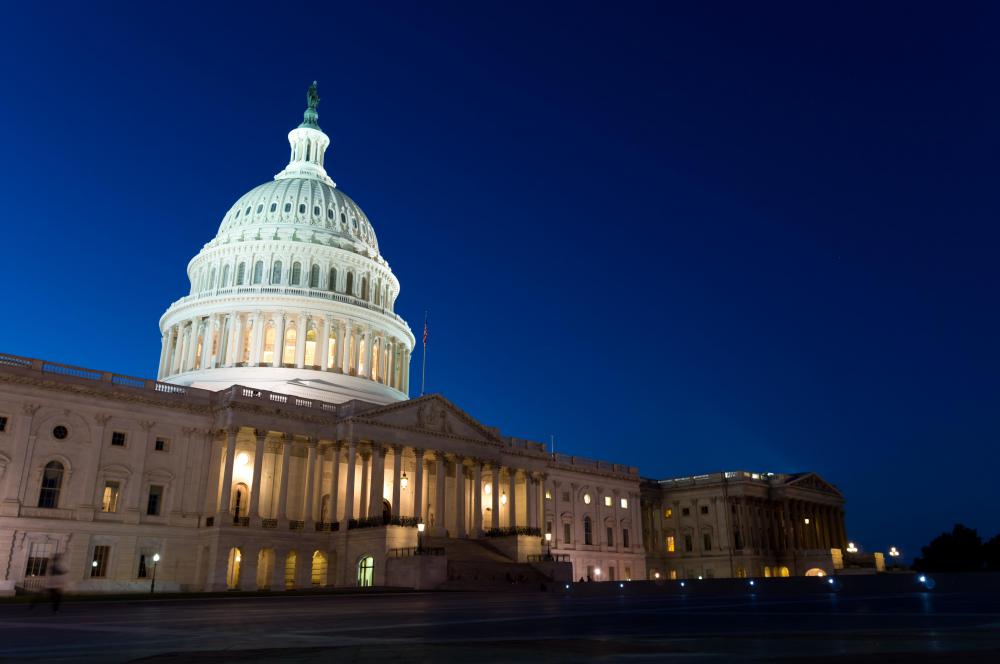At WiseGEEK, we're committed to delivering accurate, trustworthy information. Our expert-authored content is rigorously fact-checked and sourced from credible authorities. Discover how we uphold the highest standards in providing you with reliable knowledge.
What is Preemption?
Preemption is a doctrine in law which states that if there is a conflict between laws in a lower level of government and laws in a higher level of government, the higher laws win. In a simple example of preemption, if a law in the State of Illinois conflicts with Federal law in the United States, the Federal law is considered the law which must be obeyed. Preemption can come in a number of different forms, such as conflicts between municipal and state or provincial law, conflicts between laws in European Union member states and the Law of the European Union, and so forth.
Different nations have different rules about preemption. As a general rule, there are two basic types: Explicit and implied. Explicit preemption involves a law on a higher level which explicitly states that it is intended to preempt laws on a lower level, as for example when the federal government in the United States passed civil rights laws which explicitly overturned discriminatory laws in the states. In implied preemption, a conflict exists, but the higher law doesn't spell out the stipulation that it is supposed to supplant the lower law. Cases of implied preemption can sometimes be open to interpretation.

Within laws which are characterized by implied preemption, there are conflict versus field preemptions. Conflict covers a situation in which two laws contradict each other, or in which one law interferes with the enforcement of another. For example, if a law in Germany interferes with the enforcement of a law at a higher level in the European Union, it can be challenged under the preemption doctrine.

Field preemption has to do with situations in which higher order laws are intended to the primary form of governance in a particular field to avoid conflict and confusion. Immigration law, for example, is usually written on a federal level and the federal government does not want states or provinces to pass their own versions of immigration law. These types of situations often arise with laws which affect national security.
This doctrine can make things challenging for people navigating the legal system. They may find that after they take cases to court on a state or provincial level, the national government may throw the case out if they attempt to appeal a verdict because it does not recognize the state regulations which formed the foundation of the case. Likewise, national laws may make it difficult to take certain types of cases to court, such as cases against national agencies, even if state laws allow citizens to bring such suits.
AS FEATURED ON:
AS FEATURED ON:












Discussion Comments
Is the right of preemption different in the European countries than in the US? What are the differences? I need to know this to include in my paper about legal systems in the US and Europe.
I also saw the term "reverse preemption" in my reading. What does this mean?
@ddljohn-- Yea, I think so. In legal terms, that would be called "complete preemption." This is where there is a state law and also a federal law on the same issue but the laws differ. If there is a federal decision which says that in such cases, the federal law is applicable and not the state one, that's what happens.
I don't really know what happens if a state court makes a decision on a law suit using state law and it so happens that there is a federal law on that. I suppose in the example you gave, if that person hadn't gone and complained to a higher court, the decision wouldn't have changed.
So preemption doesn't necessarily happen automatically. People might have to take some action like appealing to a higher court to have it applied.
There was an article in the news about someone in my town who lost a case at the state court and then went and applied to the supreme court to appeal it. The supreme court decided in her favor and the state court's decision was no longer applicable.
Does this count as preemption? Or is this something different?
Post your comments